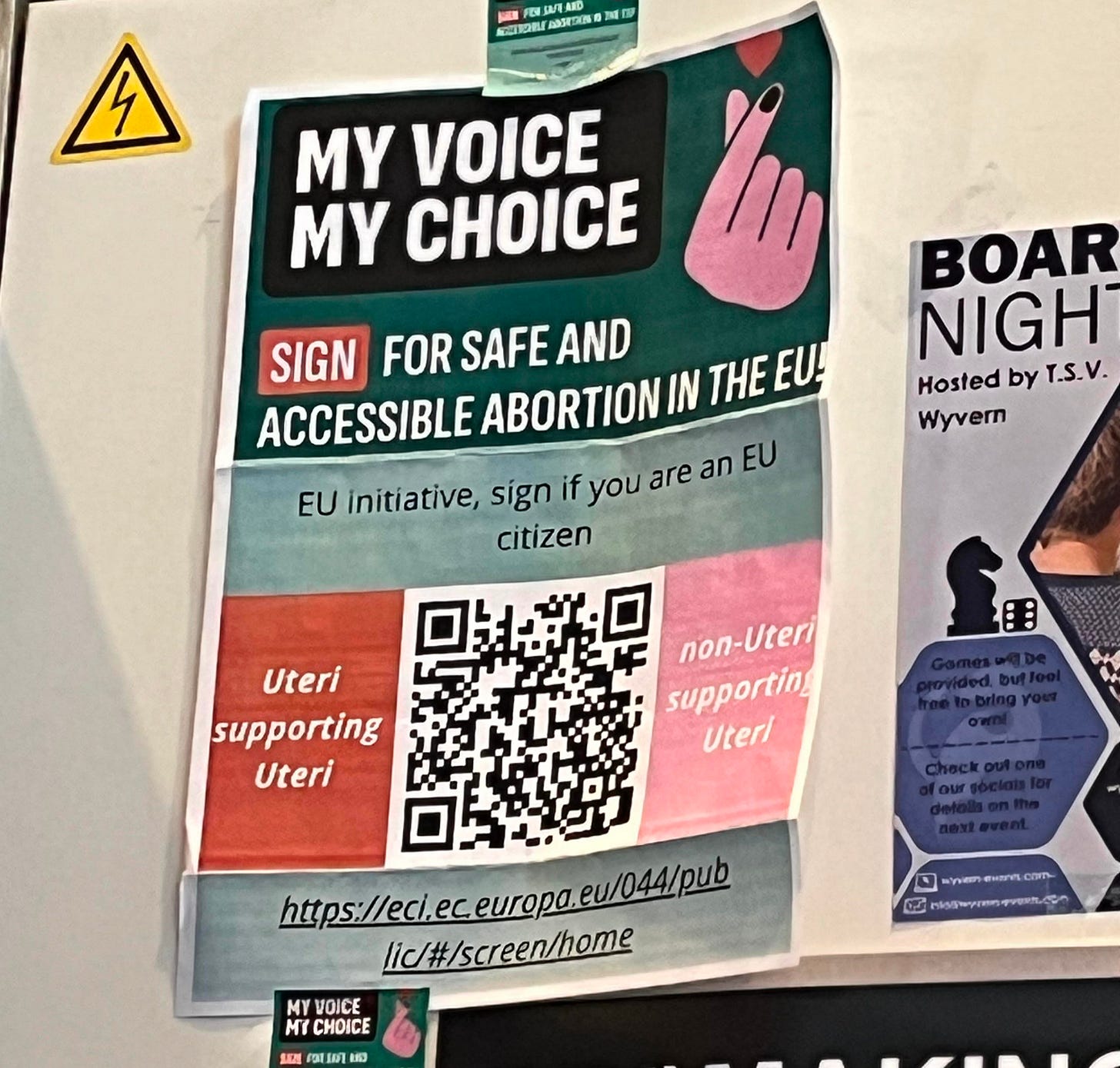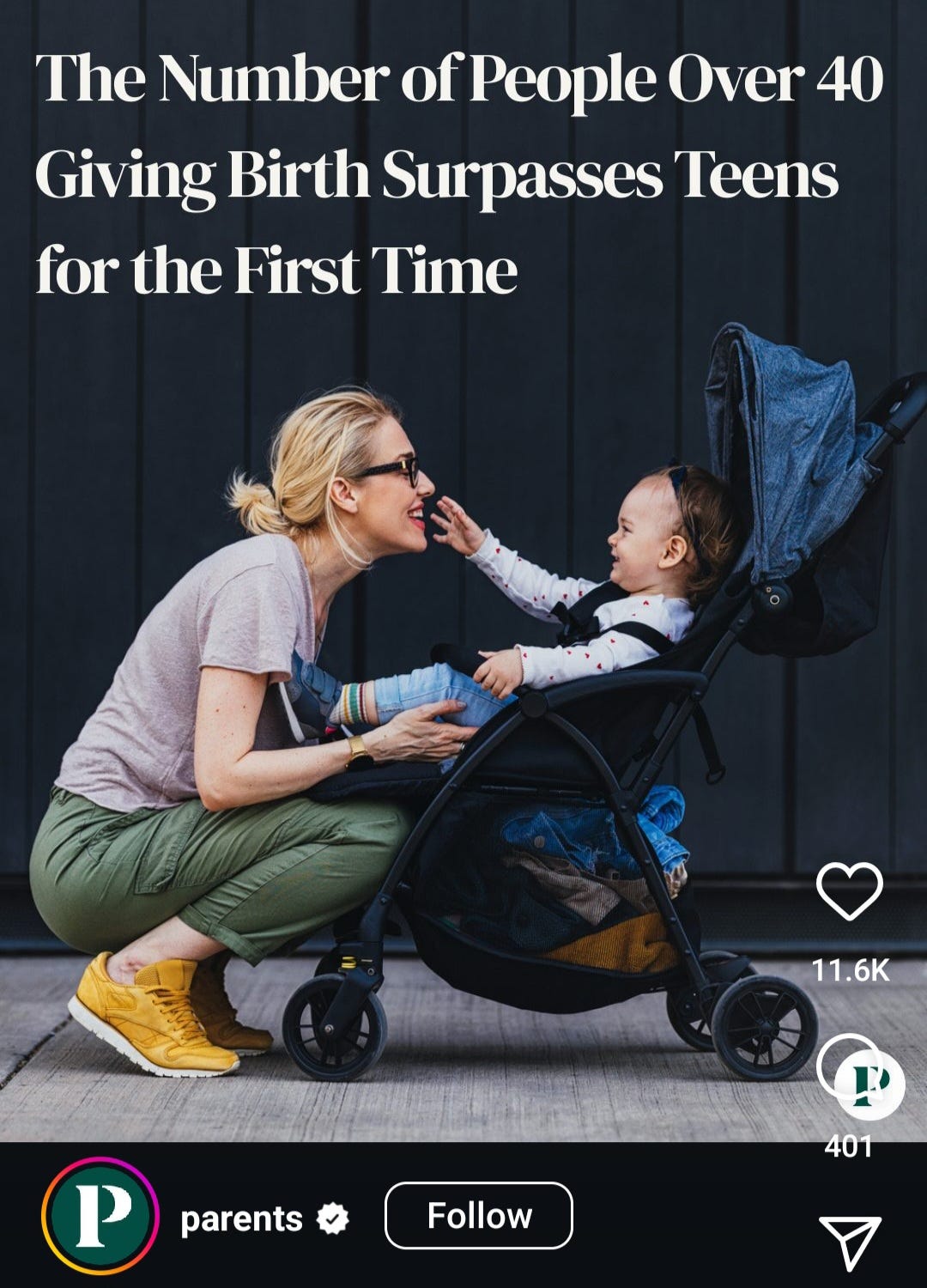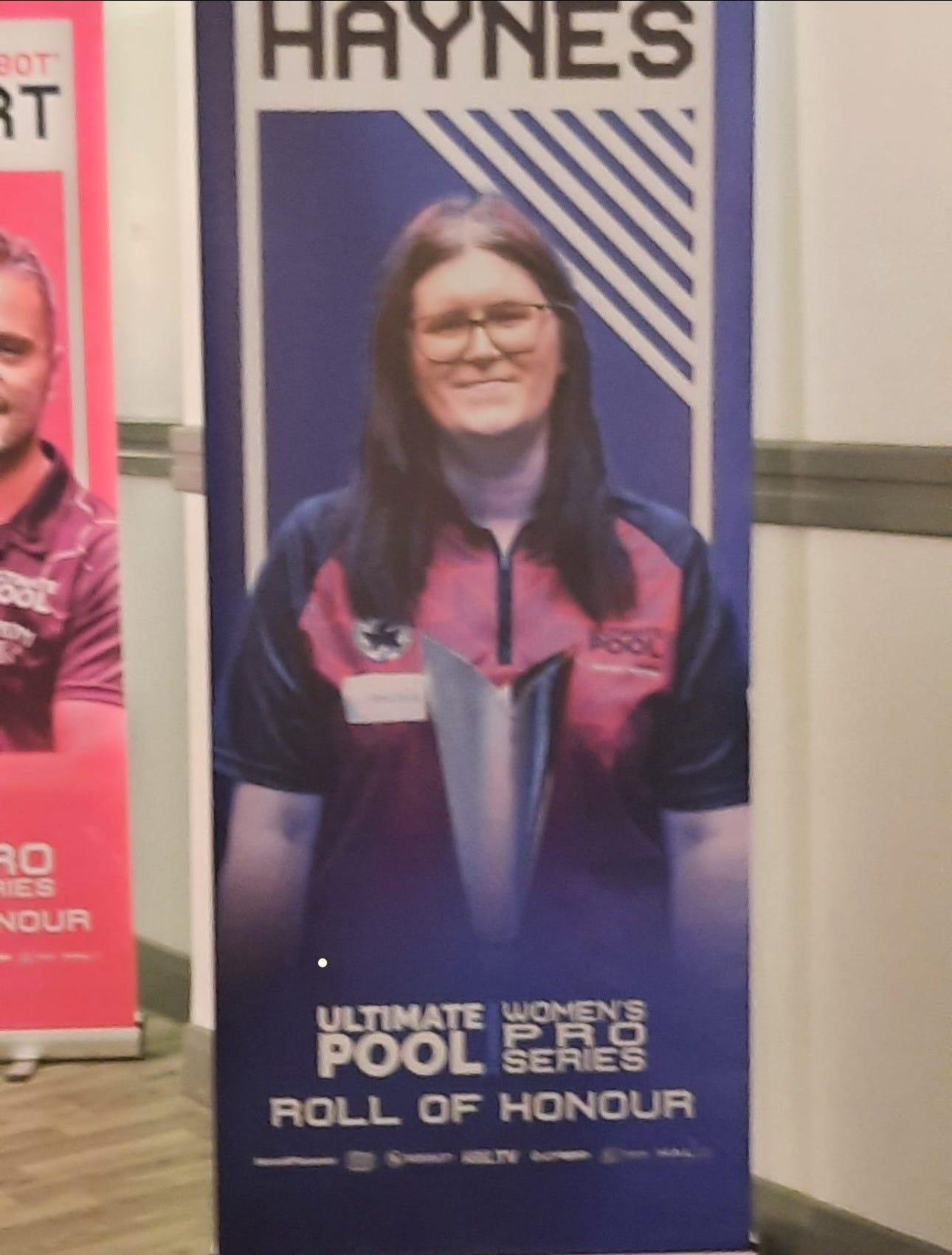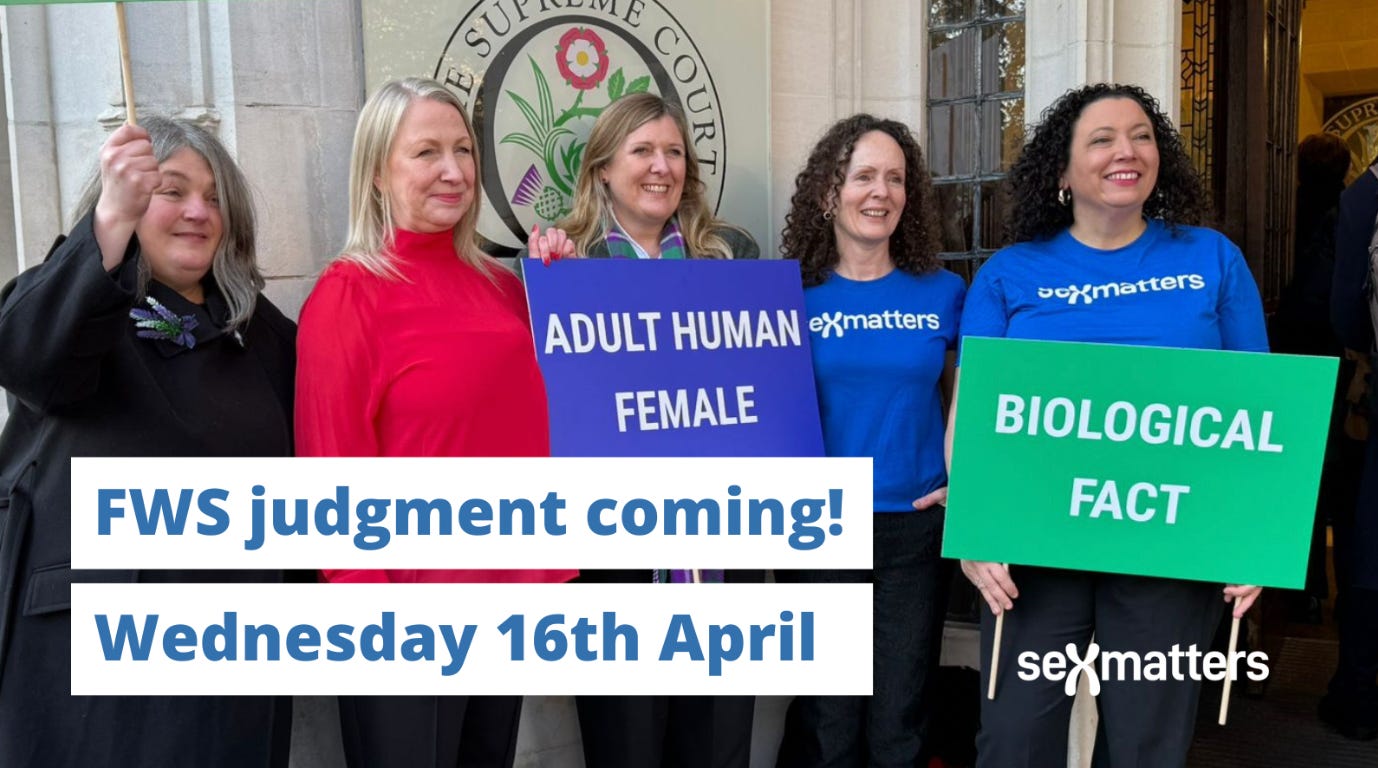The Word is Woman #67
Documenting the erasure of women from language and life.
For the past four years, ever since I spoke out about language changes in maternity such as ‘birthing people’, I have been sent hundreds of examples of convolutions of language in which the word woman is erased and replaced in the name of so-called ‘inclusivity’. Uterus owners, menstruators, non-men, bleeders, birthers, and even bodies with vaginas…the list of names we have been called and continue to be called is a seemingly endless catalogue of offence.
At the same time, we are seeing male people taking the place of women on sporting podiums and in public roles, and also being applauded as the ‘first woman’ to achieve a certain award or accomplishment, or the ‘best female’ or ‘woman of the year’ in their field.
The Word is Woman is a place to keep track.
So here is this week’s The Word is Woman for the week ending 11th April 2025.
Hello! Did you ever have one of those pin badges / stickers / t-shirts, with the slogan, ‘Women Supporting Women’?
Throw it away!
Yes, you heard me! It’s Uteri supporting Uteri these days!
Oh, and non-Uteri supporting Uteri, of course!
This is a poster sent by a reader, from a cafe wall in Delft. Yup, it’s real.
We could almost leave it there this week, case closed, couldn’t we? But there’s a few more. This, from the NHS in Oxfordshire, is a course for post-natal birthing people.
You know what a fan I am of skewed statistics! Here’s a humdinger from the Australian Assistant Minister for Health.
If 53% of Australian teens experience regular severe period pain, but only 50.1% of the Australian population are female, who are the other 2.9%?
And when they say 23% of students regularly miss school, do they mean 23% of all students, or just the female ones? It’s hard to work out.
Here’s some more shaky maths, from Parents.
That W word really bothers these people, doesn’t it?
Additive language is still seen as the best solution by some, for example Tommy’s:
and here’s a screenshot of an email they recently sent for World Health Day:
I have always been, and remain, SO curious about the term ‘birthing people’.
Some questions that continue to bug me:
Where did it originate? (best info I can find says “The earliest recorded usage appears in the 2015 book "Birthing Justice: Black Women, Pregnancy, and Childbirth," where the authors state,"Black trans/gender nonconforming birthing persons are more likely than cisgender women to seek a home birth...")
How did it gain traction so fast? By 2018 in the UK, for example, everyone in maternity was using it everywhere.
Who decided it was the best term for trans or non-binary identifying pregnant women? To me, it sounds super clunky, and potentially offensive. Why ‘birthing’? Why not just say ‘people’? Surely not all pregnant trans people want to be identified by the specific act of ‘birthing’?
The main issue with ‘additive language’, though, is simply that its very existence redefines ‘woman’, and renders it an ‘identity’, rather than a description of sex. If woman still meant ‘female person’, you wouldn’t have the need to add anything else. (and I’m not opposed to calling the very rare individuals who get pregnant but don’t wish to be called women, whatever they wish to be called - but this should be done as part of individualised care, not at population level).
When you redefine ‘woman’ and make it an open category, this happens.
This was the final of the Pro Series Ultimate Pool tournament.
Harriet played Lucy.
Except Harriet is a man.
Oh, and so is Lucy.
So it’s a final of a women’s competition, and it was contested between two men.
Harriet won, by the way.
This is why words and the definitions of words MATTER.
On Wednesday morning next week the judgement will be handed down in the Supreme Court on the For Women Scotland case.
You can read in detail about the judgement and why it matters on the Sex Matters site, here.
In short summary, the court has been asked to examine the conflict between the Gender Recognition Act of 2004 and the Equality Act (EA) 2010.
They are looking at what ‘woman’ (and ‘man’) means in this legal context.
Basically, if you have a gender recognition certificate (GRC), are you a woman or a man for the purposes of the EA? If you are male but have a GRC that says you are female, can you, for example, bring a case of discrimination under the EA against a person who wishes to hold a women only event, group, dating app etc?
The outcome of this case is pivotal, and I will be watching carefully on Wednesday and writing a short response.
Words matter. Women matter. The word is woman!
See you next time! Milli x
Please subscribe so that you never miss a post. You can subscribe for free, but paid subs help support me to keep writing. Substack is a new model of reading in which you get to pay money directly to the writer, rather than to the newspaper or advertiser. Have you noticed how lovely this advert free space is?! It’s only a very small amount a month but each subscription adds up to mean that writers like me can get paid for our time. Thank you.
I’ve written four books, would you like one?



















I was thinking, for the child who now identifies as a dog or a cat in school, the word baby really must go from that post-natal poster. Perhaps ‘mammal that was assigned human at birth’.
I can’t abide ‘additive language’. I dislike ‘women & birthing people’ more than I dislike the omission of ‘women’. One reason is - as you say - it turns the correct, sexed term ‘woman’ into a gender identity, thus de-sexing ‘woman’. The other reason is that it’s presented as a compromise - something that keeps ‘both sides happy’. I’ve had this idea put to me a few times, as a sort of moderate approach, as if insisting on ‘women’ is extremist.
Everyone knows that every birthing person is a woman….however she identifies. Additive language is a concession to anyone who thinks ‘gender identity’ is a better way than sex of categorising humans, divorcing us from our biology and making it easier for men to identify into our sex.
I don’t concede and I don’t consent!